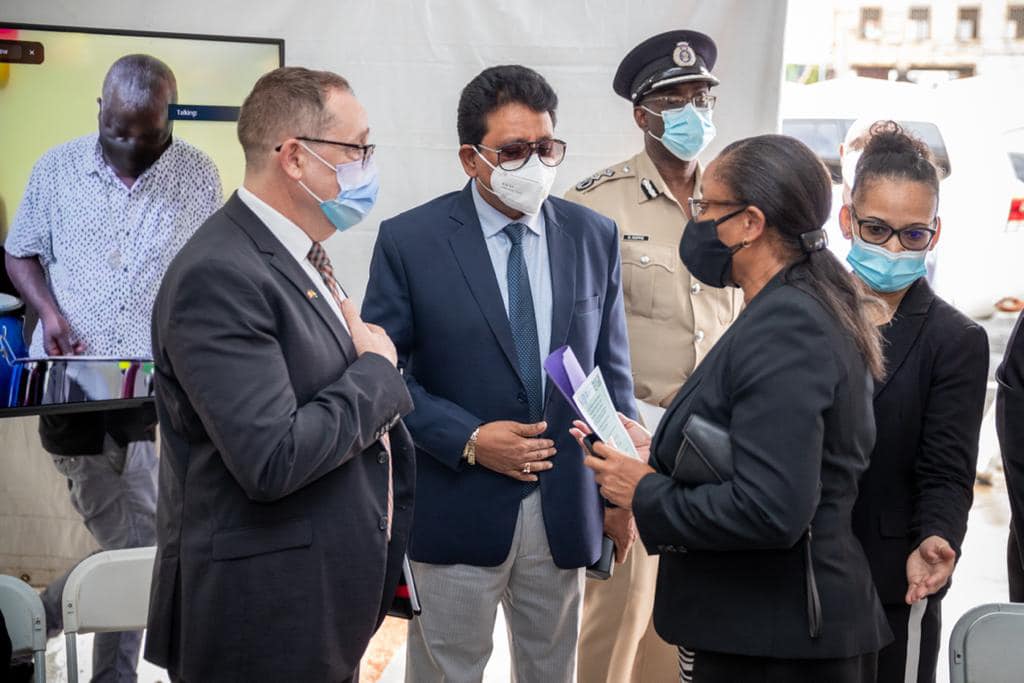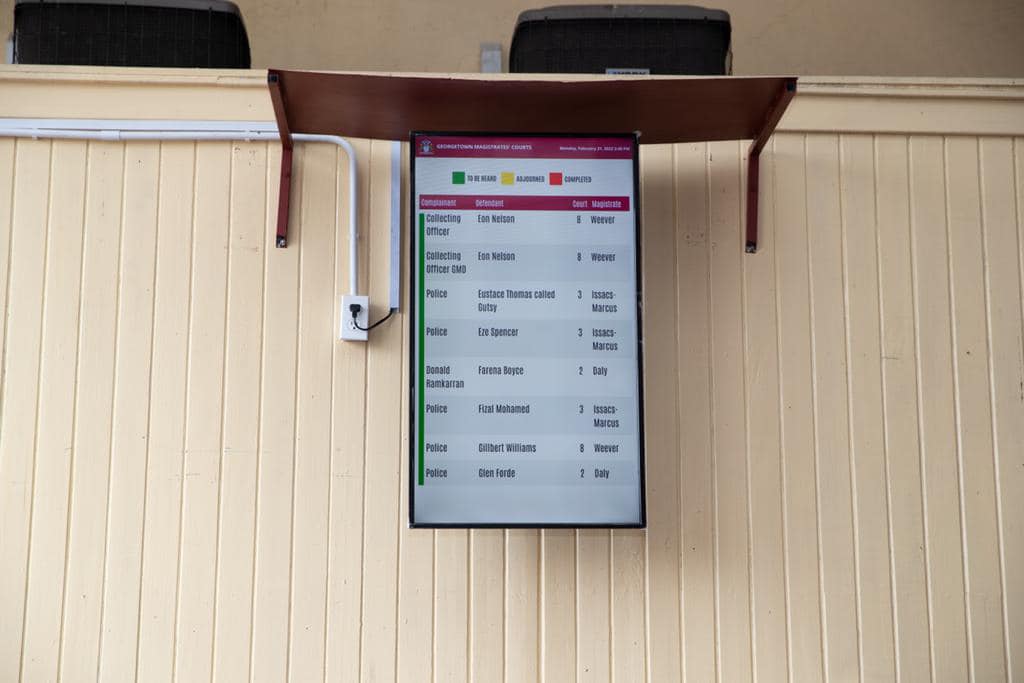The local judiciary is taking advantage of the use of technology to modernise the justice system with the launch of its electronic notice boards.
Four electronic boards were installed at the Georgetown Magistrates’ Court on Monday; they will display simple and clear information regarding when and where cases are being held and which magistrate will be presiding over the matter.
These electronic boards will also end the use of paper records to keep track of the status of matters before the court.

This initiative was rolled out by the Canadian-funded Judicial Reform and Institutional Strengthening (JURIST) Project. The software for the notice board was developed by Tagman Technology and partners; the idea was birthed when a judicial team from Guyana visited the courts in Singapore in 2018.
Chancellor of the Judiciary (ag) Justice Yonette Cummings-Edwards said it was a timely and important initiative, pointing out that it will benefit members of the public, the police, witnesses, lawyers, and the media.
“This will reduce the time spent in ascertaining in which court a particular matter is in or which magistrate is presiding over the matter; it will prevent someone from being late or have to look for a court staff,” the Chancellor said.

Meanwhile, the judiciary has also acquired public address systems; this allows persons to hear clearly when their matters are called.
Guyana has benefitted from several initiatives under the JURIST Project, including case management and deposition training, backlog reduction and elimination, drafting and implementation of new civil procedure rules in 2016, public education programmes with guidelines for handling sexual offence cases, mediation training and knowledge management systems.
Information Technology (IT) equipment, including digital audio recording units, Skype units and laptops and computers were also donated.
This equipment has also facilitated the recording of evidence and has enabled courts across Guyana to conduct virtual hearings.
“Courts as far Lethem in the Rupununi to No. 51 Springlands in the Corentyne, Kwakwani in the Berbice River and Linden in the Upper Demerara River can now conduct remote hearings and our capacity to administer justice in every square inch of Guyana is now boosted,” Cummings-Edwards revealed.
Meanwhile, Canadian High Commissioner to Guyana Mark Berman reiterated that the High Commission will continue to accelerate the digital transformation of the local court system.
Berman explained that recording systems in the courtrooms have allowed for speedier trials, noting that the judicial system has been lagging when it comes to technology.
He said the judicial system must hear and determine cases in a fair and timely manner and at a reasonable cost.
“The justice system must be equitable and accessible to all you seek out its services, processes must not be exclusionary, discriminatory or show partiality to any class of litigants,” Berman said.
As such, 15 additional laptops were also handed over to the judicial system on Monday.
“Now more than ever there is an urgent need for IT infrastructure to facilitate virtual hearing, to ensure that persons who attend court have their cases and complaints dealt with in a timely manner,” the Canadian Diplomat said.













